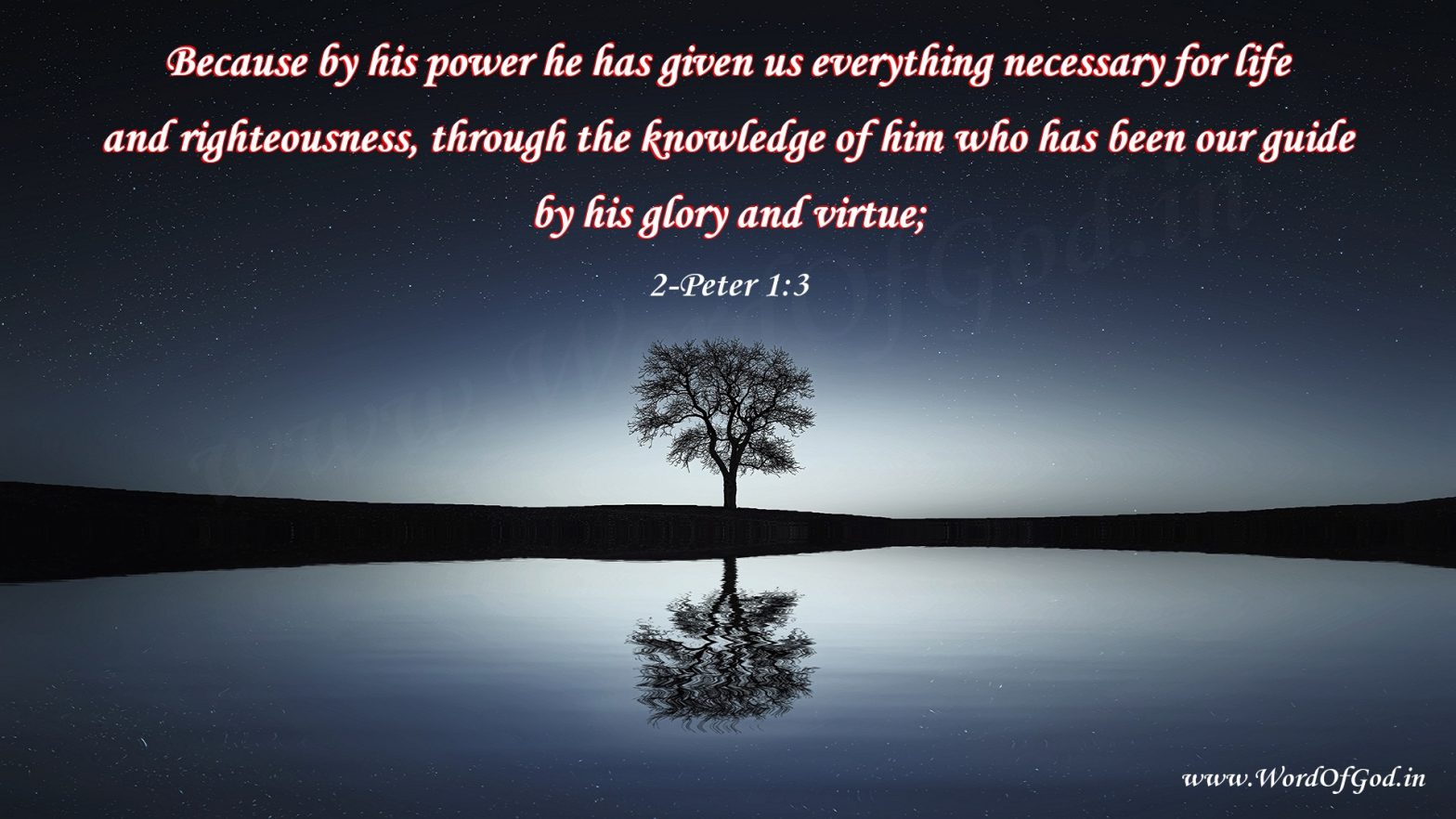THE SEED
“[We have] everything we need … through our knowledge of him who called us by his own glory and goodness.” 2 Peter 1:3
At first glance, we might think Paul didn’t need to include goodness in his description of the fruit of the Spirit. Goodness can seem to be a catch-all that absorbs every other virtue into itself. Kindness is good, patience is good, love is good. What is it about goodness that distinguishes it from any other virtues? Notice how often we hear the word “good.” People talk about having a good day, reading a good book, or eating a good meal. Sometimes, the word good is even used to describe things that are not good for you. A man talks about smoking a good cigar, and hockey players who hit each other with their fists talk about having a good fight. What one person considers good, someone else may think is hardly good at all. That’s because our concept of goodness is corrupted by sin. We are not always able to recognize true goodness when we see it. It also means we are victimized by the craftiness of the evil one more often than we realize, since he revels in giving something sinful the appearance of something good (see 2 Corinthians 11:14). Only the glory of God can help us. God’s glory illuminates foolish minds and enlightens hearts darkened by sin. If true goodness is what you desire, “taste and see that the LORD is good” (Psalm 34:8).
BIBLE READING: 2 PETER 1:1-4
PRAYER: Lord, the power of your goodness helps us know the difference between right and wrong. Continue to give us that power, and fill us with your glory. In Jesus name, Amen.
IRE
IRUGBIN NAA
“A ni ohun gbogbo ti a nilo… nipasẹ imọ wa ti ẹniti o pè wa nipa ogo ati oore tirẹ” 2 Peteru 1:3
Ni wiwo akọkọ, a le ro pe Paulu ko nilo lati fi oore kun apejuwe rẹ ti eso ti Ẹmi. Ire le dabi ẹnipe kiko – gbogbo eyiti o fa awọn iwa rere miiran sinu ara rẹ. Ire dara, suuru dara, ifẹ dara. Kini o wà nínú ire ti o ṣe iyatọ si awọn iwa rere miiran? Ṣe akiyesi iye igba ti a gbọ ọrọ ti a npe ni “dara”. Àwọn èèyàn máa ń sọ̀rọ̀ nípa níní ọjọ́ ti o dára kan, kíka ìwé tó dára, tàbí jíjẹ oúnjẹ tí o dára. Nigba miiran, ọrọ ti a npe ní dara yi, a le lo lati ṣe apejuwe awọn ohun ti ko dara fun ọ. Ọkunrin kan sọrọ nipa mimu siga ti o dara, ati awọn elere idaraya ti a npe orukọ rẹ ní hockey ti o lu ara wọn pẹlu ẹ́ṣẹ ọwọ wọn sọrọ nipa nini ija to dara. Ohun ti eniyan ro pe o dara, awọn ẹlomiran le ro pe ko dara rara. Iyẹn jẹ pé ero nipa-ọrọ ti a npè ni dára wa ti le bajẹ nipasẹ ẹṣẹ. A ko ni anfani nigbagbogbo lati mọ ire tootọ nigba ti a ba ri i. Ó tún túmọ̀ sí pé a ń fìyà jẹ wá lọ́pọ̀ ìgbà nípasẹ̀ àrékérekè ẹni ibi, ju bí a lérò, níwọ̀n bí ó ti ń yọ̀ nínú fífúnni ní ìrísí ohun tí ó jẹ́ búburú ní ìrísí ohun tí o jẹ rere (wo 2 Kọ́ríńtì 11:14) Ògo Ọlọ́run nìkan ló lè ràn wá lọ́wọ́. Ògo Ọlọ́run nìkan ní o lé ràn wá lọwọ. Ogo Ọlọrun n mọ́lẹ̀ sí ọkàn òmùgọ̀, ó sì ń tàn imọ́lẹ̀ fún àwọn ọkàn ẹ̀ṣẹ̀ tí o ṣókùnkùn biribiri. Bí ire òtítọ́ bá jẹ́ ohun tí o fẹ́, “tọ́ ọ wò, kí o sì rí i pé rere ní OLÚWA” (Orin Dafidi 34:8).
BIBELI KIKA: 2 Pétérù 1:1-4
ADURA: Oluwa, fi agbara ire rẹ ran wa lọwọ lati mọ iyatọ laarin rere ati aburu. Tẹsiwaju lati fun wa ni agbara na, si fi ogo rẹ kun wa. Ni oruko Jesu Amin.
